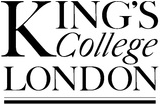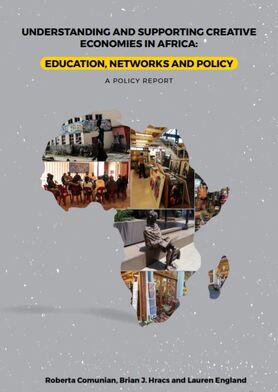 We are delighted to announce that the final report from the AHRC funded international research network "UNDERSTANDING AND SUPPORTING CREATIVE ECONOMIES IN AFRICA" has now been published and is available to download online from: https://doi.org/10.18742/pub01-048 The report provides a summary of the research journey undertaken, including the methodology and data collected across the three cities involved in the network activities: Nairobi, Lagos and Cape Town. It presents a critical discussion on the role of creative intermediaries, focusing specifically on their contribution to the development of creative economies in Africa. Eight case studies of creative intermediaries at work are presented under four headings: Creative intermediaries and the role of higher education; creative intermediaries and creative workforce development in action; creative intermediaries, co-working, finance and networks and finally creative intermediaries, communities and development agendas. The report concludes by highlighting the key role those creative intermediaries can play in connecting development agendas (cultural, social and economic) in Africa. It also presents five cornerstones for policy considerations to enable creative economies to thrive. This includes (1) recognising the value that creative economies bring to communities, society and the economy; (2) recognise the role of creative intermediaries in bringing together policymakers, communities and entrepreneurs; (3) investment in higher education collaborations and partnerships; (4) strengthening continental and international collaborations through research and network building to support knowledge sharing and (5) creating accessible and inclusive infrastructure to support creative economies that are open to everyone. We are very grateful for all the support received throughout the project that enabled the research and fieldwork, especially from colleagues in Africa. In particular: Ogake Mosomi and Professor Lilac Adhiambo Osanjo at the University of Nairobi; Professor Duro Oni at the University of Lagos and Professor Jen Snowball from Rhodes University. Thanks also to Elsardt Kigen, student at the University of Nairobi Creative Arts Department for the design work undertaken for the report. If you have any feedback about our research and if the report is useful in anyway to your work in the future, please let us know, we really appreciate your feedback Finally, we invite anyone interested in understanding these issues in more depth to engage with the books we recently published: Comunian, R., Hracs, B.J. and England, L. eds., 2021. Higher Education and Policy for Creative Economies in Africa: Developing Creative Economies. Routledge. https://www.routledge.com/Higher-Education-and-Policy-for-Creative-Economies-in-Africa-Developing/Comunian-Hracs-England/p/book/9781003127802 Hracs, B. J., Comunian, R., and England, L. eds., 2022. Developing Creative Economies in Africa Spaces and Working Practices. Routledge. https://www.routledge.com/Developing-Creative-Economies-in-Africa-Spaces-and-Working-Practices/Hracs-Comunian-England/p/book/9780367481940
0 Comments
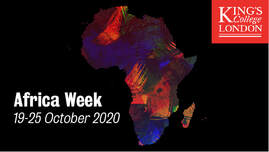 Higher Education and Policy for Creative Economies in Africa Panel discussion and Book Launch Friday 23rd October 11.00-12.15 am UK time Join us to discuss with UK and African academics the role of higher education and policy for the creative economies in Africa. Dr Roberta Comunian (King’s College London), Dr Brian Hracs (University of Southampton) and Dr Lauren England (University of Dundee) will chair this event, that sees the launch of their edited book “Higher Education and Policy for Creative Economies in Africa” published by Routledge and available from the 6th of November. The event will consist of two roundtables with authors that contributed to the book, including leading academics from the University of Lagos, the University of Nairobi and the North-West University, South Africa. The event will take place online Friday 23rd of October at 11.00 am-12.15 UK time. Please register here to take part. This event is part of King's College London Africa Week. 11.00 welcome by the organisers and brief overview of the AHRC research network “Understanding and supporting creative economies in Africa: education, networks and policy”. 11.05 Roundtable 1: Higher education for Creative Economies in Africa Chair: Dr Roberta Comunian (King’s College London)
11.35 Roundtable 2: Policy for Creative Economies in Africa Chair: Dr Brian Hracs (University of Southampton)
12.10 Concluding remarks Today Dr Roberta Comunian will contribute to the ACSPN Virtual Conference 2020 discussing the recent research developed as part of the network on 'creative intermediaries' and also a forthcoming chapter (with Dr Lauren England Emouhli Iruobe) on "Coworking, gender and development: The case of Tribe XX Lab" that will be published in 2021.
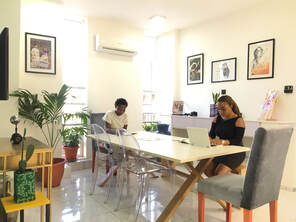 How are cultural and creative industries playing a role in developing economies? This International Women's Day, Dr Roberta Comunian and Dr Lauren England explore the female entrepreneurship and gender equality movement that's growing in Africa. Developing a better understanding of creative economies in emerging African countries and exploring strategies to encourage their development was the aim of the research carried out by Dr Roberta Comunian and Dr Brian Hracs (University of Southampton) from 2016-2019. They led the AHRC-funded research network “Understanding and Supporting Creative Economies in Africa: Education, Networks And Policy”, with support from Dr Lauren England. They investigated co-working spaces, which are widespread in Nigeria, however, Tribe XX Lab is the first and only co-working and wellness space exclusively for women in Nigeria. The co-working and wellness space opened its doors on International Women’s Day in 2018, and has since received support from local, national and international organisations, including She Leads Africa. Tribe XX Lab and its community are active in supporting women’s rights and activism in Nigeria and across Africa. We believe that empowering women means uplifting the economic health and wellbeing of a nation. Our mission is to help businesses created and led by women grow by solving their problems through training, capacity building, access to funding, office space and a rich network of professionals all committed to the total economic empowerment of women in Nigeria.– Emalohi L. Iruobe Esq, Co-founder of Tribe XX Lab For female entrepreneurs in Nigeria, there is limited access to funding, a lack of mentors to provide guidance and stereotypes that block women from being accepted as experts and supervisors. Social norms continue to support male dominance in economic affairs which can discourage self-confidence in female entrepreneurs. However, Dr Comunian, Dr Hracs and Dr England found that co-working spaces and collectives can act help support gender equality and women’s economic empowerment in developing economies. Tribe XX Lab’s Accelerator for women, that equips participants with funding, training and access to an investor network, can make a huge difference in boosting economic growth which lifts millions of people out of poverty in the process. The space has attracted female entrepreneurs across categories from hair care and lingerie to computer programming. In 2020 two publications co-edited by Dr Comunian, Dr Hracs and Dr England on Creative Economies in Africa will be published, bringing together findings from the network activities with the work of other scholars, policy makers and creative practitioners. Dear Colleagues, we are planning to organise a special session (or 2) on ‘Creative Economies in Africa’ at the upcoming Association for Cultural Economics International (ACEI) conference, taking place in Lille from 30 June to 3 July 2020. (Conference website: https://acei-2020.univ-lille.fr/ ) We would love to include a relevant paper from your work in the session. The focus of the proposed special session is outlined in the abstract below - it is quite broad, and seeks to include a wide range of work on the economics of cultural and creative industries in the African context. Please let us know if you would like to be include by the 15th of January, with your proposed paper title, list of authors and an abstract of no more than 500 words, so we can prepare the full proposal. Email the proposals to creativeconomy.africa@gmail.com Creative Economies in Africa(Proposed Special Session at ACEI 2020 https://acei-2020.univ-lille.fr/) The growth and development of creative economies across the African continent has recently become the focus of academic research and policy concerns. In this special session we bring together recent work on the development of the creative and cultural industries as well as broader concerns about the impact of these activities on economies, communities and national development in a range of African countries. The papers included aim to develop a better understanding of the cultural and creative industries in African countries and to explore strategies to encourage and enable sustainable context-specific cultural, social and economic development. The session will provide a platform for academics, creative practitioners, and policy and network bodies to reflect on their work and practice in relation to creative economies in Africa. It will facilitate knowledge exchanges between the Global North and the Global South, highlighting the importance of context specific knowledge and encouraging connections between local cultural production networks. Papers included can consider the following (but not exclusively): - creative and cultural industries development in Africa - urban cultural / creative policy interventions in African cities - the role of festivals and cultural events in local and national development - creative industries finance and intellectual policy concerns - diversity and inclusion in creative economy labour markets - African cultural policy in relation to the economic contribution of the cultural and creative industries. Dr Roberta Comunian & Prof. Jen Snowball Written by Sana Kim and Manfredi De Bernard 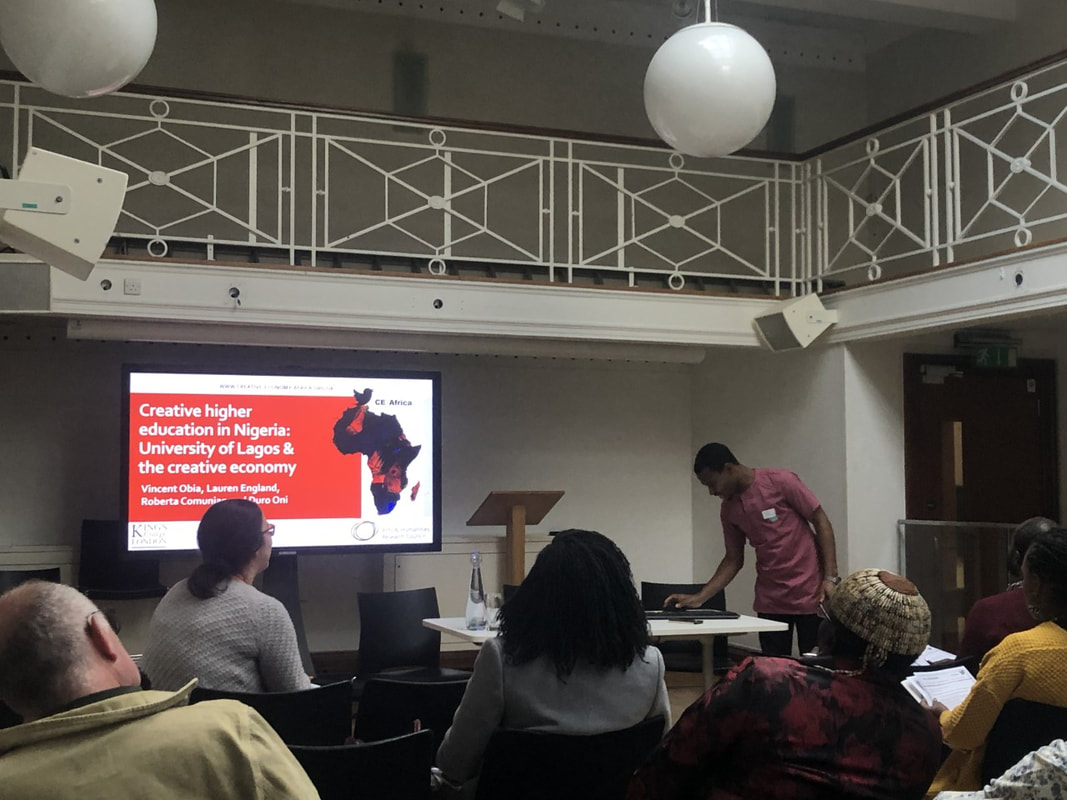 On the 14th of November CMCI department hosted Understanding and Supporting Creative Economies In Africa, a one day international conference, which served as a closing event of the AHRC funded research network Understanding And Supporting Creative Economies In Africa: Education, Networks And Policy led by Dr Roberta Comunian (King’s College London) and Brian Hracs (University of Southampton). The purpose of the event was twofold. First, it intended to give collaborators and partners of the research network an opportunity to disseminate their research findings. Second, it aimed to bring together UK and African academics but also creative economy practitioners to discuss the current state of knowledge in relation to the development of creative economy in Africa from both perspectives - academic research and practitioners’ experience. The conference comprised of four sessions with each session narrowing the discussion to a specific topic in relation to the creative economy in Africa. The first session focused specifically on the matters of education relevant to the creative economy in Africa. Via case studies from Nigeria, Kenya and Uganda speakers we able to identify various gaps in the creative education provision and shortages of certain skills among local creative practitioners. One of the speakers – Joan Mosomi (University of Nairobi) – found that in case of fashion design higher education institutions in Nairobi tend to concentrate on theoretical aspects of the discipline, often overlooking its practical aspects, which has led to the shortage of entrepreneurially and technically savvy creatives in the field. During the second session speakers explored the role of arts and creativity beyond the economy. Prof. Burton (Newcastle University) and Dr Nabulime (Makerere University) opened the session by sharing amazing stories of young artists in East Africa, whom they personally met and interviewed. The speakers highlighted some of the common challenges these artists face ranging from the absence of government support to the overall weakness of the local creative ecology. After an enlightening review of the cultural policy evolution in Nigeria delivered by Prof. Duro Oni (University of Lagos), Creative Economy Programme Manager – Genevieve Pace – shared how on-going projects by the Creative Economy division of the British Council are actively trying to fill these gaps through various workshops, training and direct funding opportunities. The next session looked at creative intermediaries. Wakiuru Njuguna shared a brilliant mission of the HEVA Fund, which supports a lot of artists and creative industries in Africa, taking up a vital responsibility – often absent – of a financing stakeholder of the creative ecosystem. Lauren England (King’s College London) then proceeded with an investigation of creative intermediaries and their roles in the African contexts. Dr Lilac Adhiambo Osanjo (University of Nairobi) then shifted the focus of the session to the issues around the growth of fashion design industry in Kenya. The final session payed attention to creative markets, networks and mobilities with contributions from the conference co-organisers. Dr Brian Hracs opened the session with the discussion on various forms of mobility (temporary, mediated and virtual) available to the creative entrepreneurs today. Then, using a case study of craft intermediaries in Cape Town, Dr Roberta Comunian reflected on the vital role that creative intermediaries and creative ecologies play in African creative economies that often lack in public support. While the network activites have officially closed with the conference there are many academic outputs in the pipeline, including two edited books and a policy report. If you would like to keep updated about future outputs, please the project blog in 2020 14th November 2019 Anatomy Museum, King’s College of London 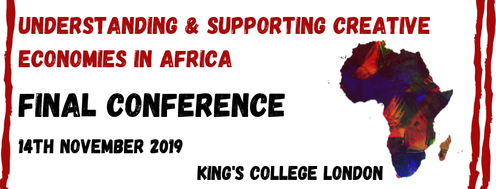 This international one-day conference, closing event of the AHRC funded research network “Understanding and Supporting Creative Economies in Africa: Education, Networks and Policy”, will bring together UK and African researchers to discuss the current state of knowledge and understanding in relation to the development of creative economies in Africa. Participation is free but please remember to register https://creative-economy-africa.org.uk/final-conference-london.html 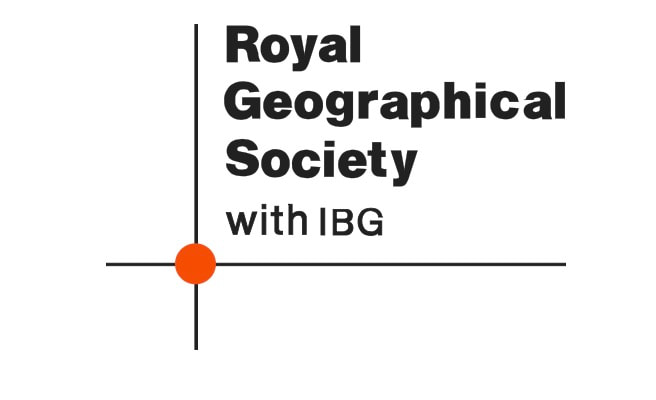 We will be hosting three exciting sessions Friday August 30, 2019. All sessions will take place in the Sherfield/SALC Building, Read Lecture Theatre. Times and detailed outlines below: Creative Economies in Africa: new research and policy perspectives: The role of co-working and business development in the creative economy in Africa http://conference.rgs.org/AC2019/336 Creative Economies in Africa: new research and policy perspectives: Geographies of creativity in Africa: urban, rural and beyond http://conference.rgs.org/AC2019/371 Creative Economies in Africa: new research and policy perspectives: Creative work, mobilities and education in the development of Africa's creative industries http://conference.rgs.org/AC2019/401
We are currently looking into mapping craft spaces in South Africa (with a focus on Cape Town). This includes markets, craft centres and galleries, potteries, community workshops and network organisations.
If you know of any other places that should be included on this map please send us the name and location (as precise as possible) using the contact form on the website. On the 11th of April we hosted an incredibly talented and enthusiastic group of creative intermediaries from Lagos and beyond. The event was hosted by a new art education / co-working space in Ikoyi called Angels & Muse, providing an inspirational atmosphere for our workshop with art showcased in our surroundings. The event began with a brief presentation from the UK team which introduced the role of creative intermediaries and started off the discussion in relation to developing sustainable creative economies. The presentation is available to download below.
The second session of discussion, led by Lauren England, focused on the needs and experiences of creatives. We considered their needs in Lagos/Nigeria and the challenges they face in moving from start-ups to establish businesses. Many participants highlighted the difficulties for creatives in establishing and maintaining a healthy supply chain and working with other creatives and non-creatives to develop their business. It was discussed how this often resulted in individuals having to cover too many multiple roles (from artists, to promoters, to printers and sellers), which gave them less room to be creative. After a coffee break the discussion led by Dr Roberta Comunian focused on creative intermediaries, trying to define them and consider how they work together in the Nigerian context and understand what knowledge and skills they require to face current challenges. Participants highlighted the importance for intermediaries to have experience as creatives themselves, but also the importance of developing specific knowledge of the sector they work in. Finally, they discussed how value and integrity were key to the work of creative intermediaries. After a lovely and generous Nigeria lunch we were back for more discussion around mobility and international networks; many highlighted the importance of international exchanges and training abroad. However, an issue around selection criteria for international competitions was raised; as Nigerians tend to undertake training and establish themselves later in life than their international counterparts, they are often at a disadvantage in entering competitions targeted at 25 to 35 years old producers or creatives. thanks to Oguntade Olubola for the photos here above The final session of the day was led by Yemisi Mokuolu from Hatch Africa reflecting on the current (and potential) role of technology in bringing together intermediaries. Here participants highlighted the importance of storytelling on social media to connect with local and global audiences. They expressed a wish for a digital hub connecting creatives across Nigeria but also acknowledged the challenges in developing and maintaining such a platform. As organisers we felt everyone had been extremely generous and friendly at the event and by the end of the day we felt like a little family. Many of the participants also joined the team at an evening event organised by one of the participants Kamil Olufowobi at Terra Kulture, a Lagos cultural centre. The event included a debate on ‘Hollywood Meets Nollywood’ with special guest Abi Matesun and notable Nollywood personalities as panellists, with Stephanie Busari, CNN Africa, as the moderator. At the end of the event Kamil kindly provided Dr Roberta Comunian with an opportunity to introduce the research project to the audience. Event report written by Dr Roberta Comunian and Lauren England
|
Network Research BlogThe blog aims to collect ideas, reflections and updates from researchers working on creative economies in Africa. If you are interested in contributing please get in touch via our contact form Archives
September 2021
Categories
All
|
||||||
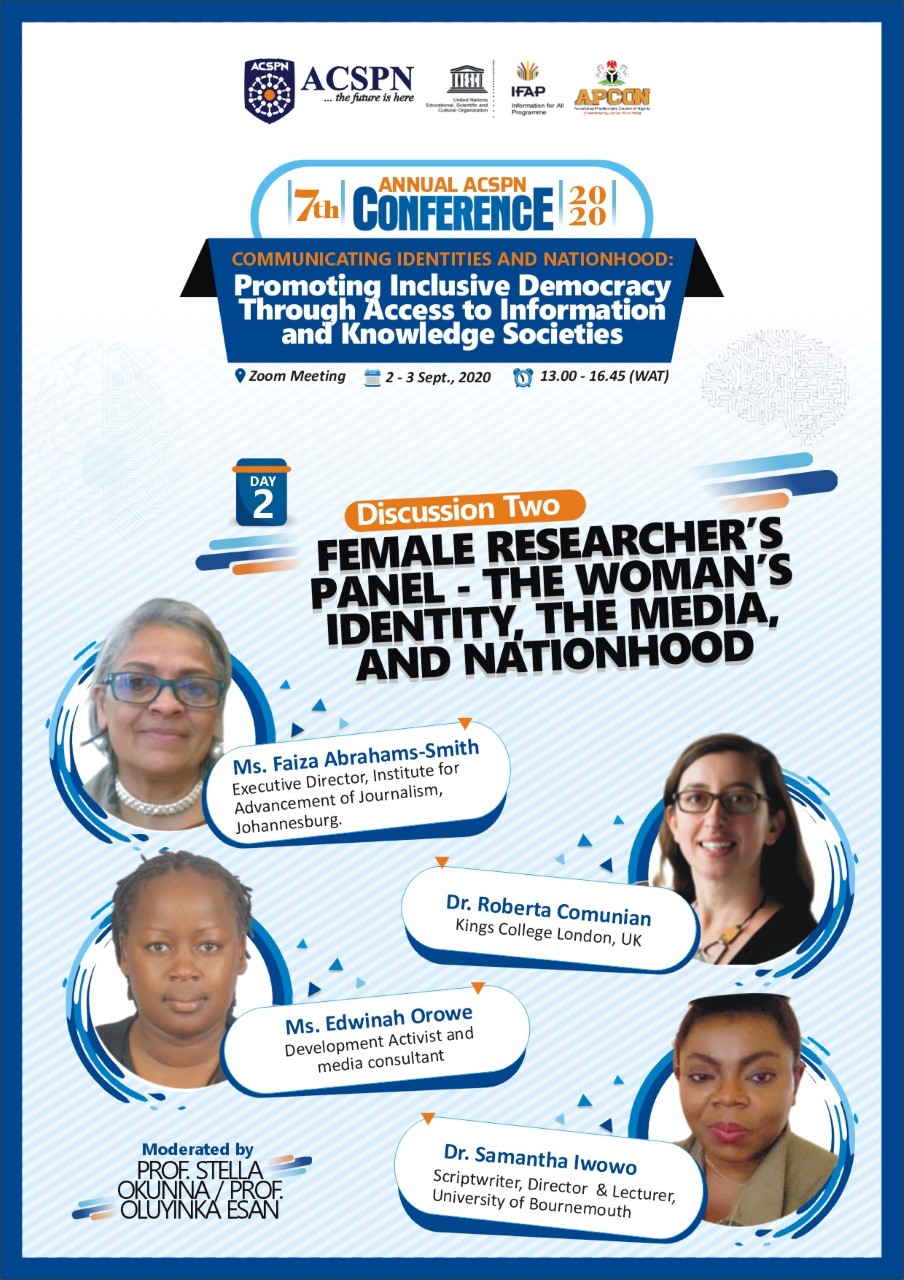
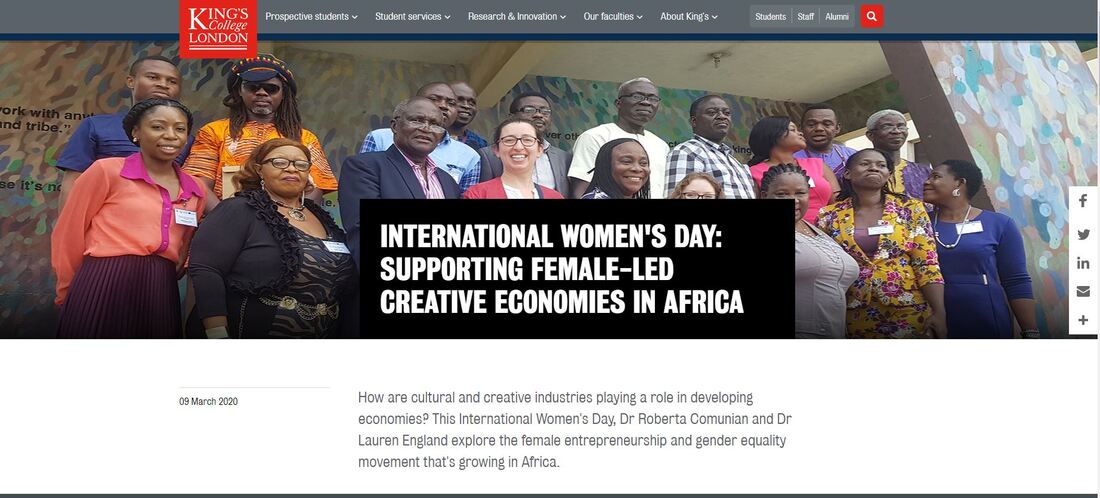
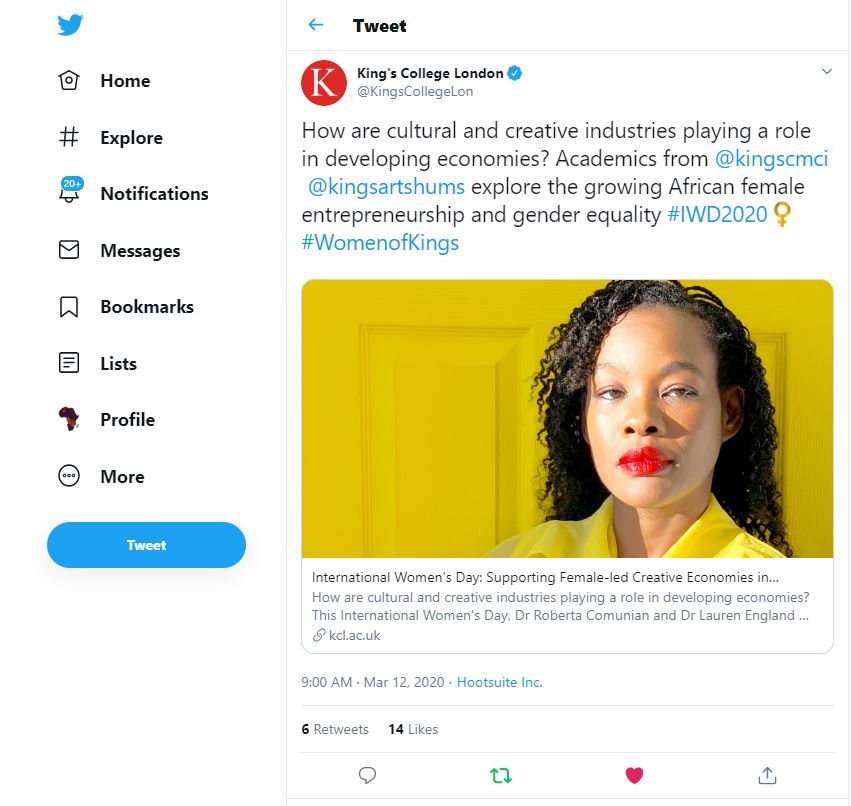
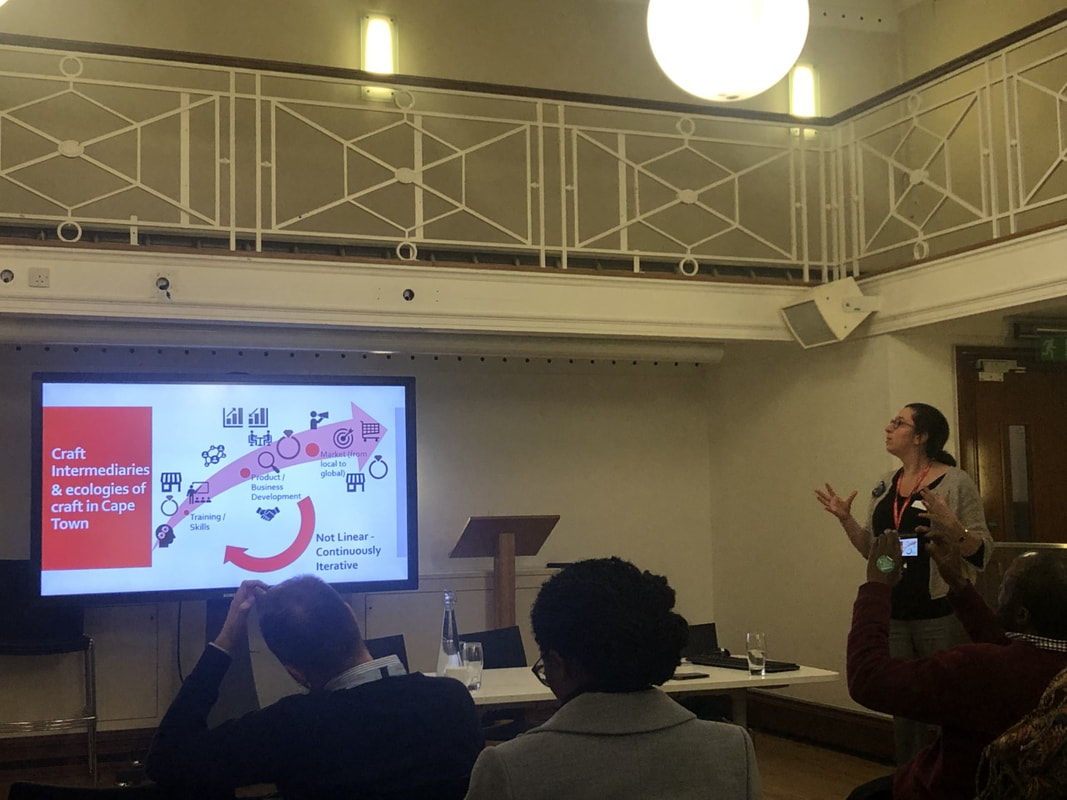
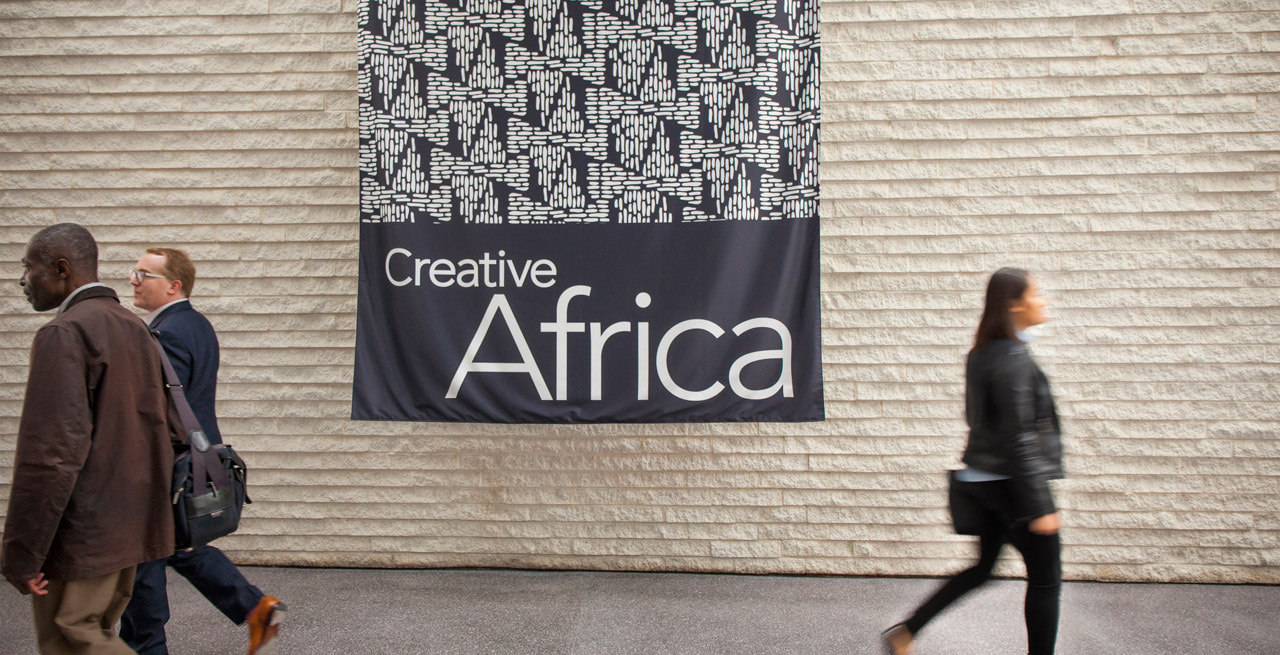
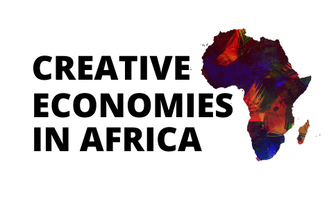
 RSS Feed
RSS Feed



